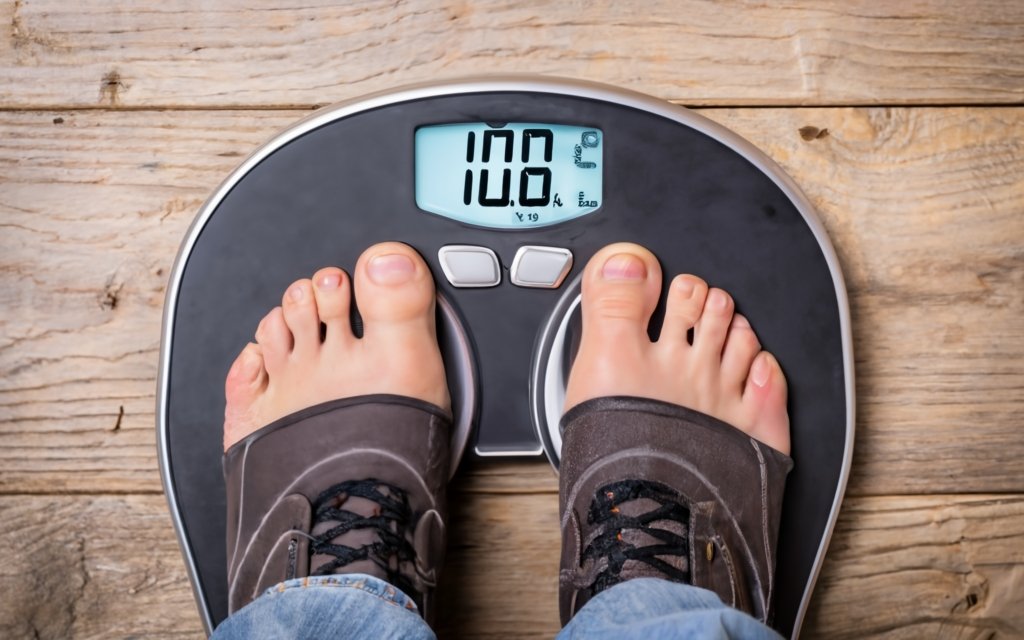Tracking your body weight can be a helpful tool for monitoring your overall health and progress towards your diet goals. However, it’s important to use scale body weight in a way that is accurate, meaningful, and sustainable. In this blog post, we will discuss how to use scale body weight effectively to track your diet.
Why Use Scale Body Weight to Track Your Diet?
There are several reasons why you might want to use scale body weight to track your diet. Here are a few of the most common reasons:
- To assess your overall health: Scale body weight can give you a general idea of whether you are at a healthy weight for your height. This information can be helpful for making informed decisions about your diet and exercise habits.
- To track your progress towards your diet goals: If you are trying to lose weight, gain weight, or maintain your current weight, tracking your scale body weight can help you see if you are making progress.
- To identify potential health problems: Sudden changes in scale body weight can be a sign of an underlying health problem. If you notice that your scale body weight is fluctuating significantly, it is important to talk to your doctor.
How to Track Your Scale Body Weight Effectively
Here are some tips for tracking your scale body weight effectively:
- Choose a scale that is accurate: Not all scales are created equal. It is important to choose a scale that is accurate and consistent.
- Weigh yourself at the same time each day: The best time to weigh yourself is in the morning, before you have eaten or drunk anything. This will help you get the most accurate reading.
- Weigh yourself in the same clothes each time: Weight can fluctuate depending on the clothes you are wearing. So, to get the most accurate reading, weigh yourself in the same clothes each time.
- Track your weight over time: It is more helpful to track your weight over time than to focus on individual readings. This will help you see trends in your weight and make adjustments to your diet as needed.
- Don’t obsess over the numbers: Scale body weight is just one measure of your overall health. It is important not to get too focused on the numbers, as this can lead to unhealthy and unrealistic expectations.
Additional Tips for Tracking Your Diet
In addition to tracking your scale body weight, there are other things you can do to track your diet and progress towards your goals. These include:
- Keeping a food diary: This can help you see what you are eating and drinking each day and identify areas where you can make changes.
- Using a food tracking app: There are many food tracking apps available that can help you track your calories, macronutrients, and other nutritional information.
- Paying attention to your hunger and fullness cues: This can help you eat when you are hungry and stop when you are full.
- Making gradual changes to your diet: It is best to make small, gradual changes to your diet rather than trying to overhaul everything at once.
- Finding support: Talk to your doctor, a registered dietitian, or a support group for help with your diet goals
Remember, tracking your diet is a journey, not a destination.
There will be ups and downs along the way. The important thing is to stay focused on your goals and make healthy choices that you can sustain over time.
Here are some additional resources that you may find helpful:
- The National Institutes of Health (NIH) website: https://www.nih.gov/
- The Academy of Nutrition and Dietetics (AND) website: https://www.eatright.org/
- The Centers for Disease Control and Prevention (CDC) website: https://www.cdc.gov/
Buy NoW Your Body Scale

While a simple body weight scale might seem like a basic tool, it can be a surprisingly powerful ally in your quest for a healthier diet. Here’s how:
Track Your Progress: Weighing yourself regularly, ideally once a week at the same time of day, provides crucial data points to track your progress. Observing the trend over time, rather than obsessing over daily fluctuations, can help you assess your diet’s effectiveness and motivate you to stay on track.
Identify Patterns: By charting your weight and analyzing it alongside your food intake, you can identify patterns and potential triggers. Notice if certain foods or mealtimes lead to weight fluctuations, and use this information to refine your dietary choices.
Set Realistic Goals: A body scale helps you set realistic and achievable goals. Instead of aiming for drastic, overnight changes, focus on progressive, sustainable weight management. Celebrate smaller milestones and adjust your goals as needed, ensuring your journey is empowering and rewarding.
Boost Accountability: The simple act of stepping on the scale can add a layer of accountability to your diet. Knowing you’ll have to face the numbers can motivate you to make mindful choices and stay committed to your goals.
Promote Body Awareness: Regularly weighing yourself fosters a deeper awareness of your body’s responses to food and exercise. This self-awareness can empower you to make informed decisions about your diet and lifestyle, leading to lasting positive changes.
Remember, your body weight is just one piece of the puzzle. Focus on healthy eating habits, consistent exercise, and a balanced lifestyle to truly transform your well-being. Use your body scale as a valuable tool to track progress, identify patterns, and stay motivated on your journey towards a healthier you.
